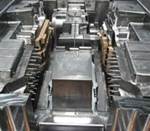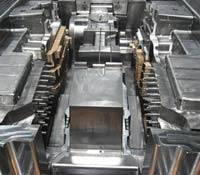The Value of Hiring Interns
As a college student at a top engineering school who has also been exposed to the manufacturing industry for most of my life—my father Todd is the owner of Commercial Tool & Die (Comstock Park, MI) and the new president of the American Mold Builder’s Association (AMBA)—I see a disconnect between schools like Purdue and the small businesses that support a vast percentage of American Manufacturing.
As a college student at a top engineering school who has also been exposed to the manufacturing industry for most of my life—my father Todd is the president of Commercial Tool & Die (Comstock Park, MI) and the new president of the American Mold Builder’s Association (AMBA)—I see a disconnect between schools like Purdue and the small businesses that support a vast percentage of American Manufacturing. It is astonishing how little my fellow students know about where their degrees will land them. Also, it is difficult for them to attain meaningful part-time or summer employment in an industry that is struggling to find qualified employees.
On-the-job training is not something that schools such as MIT or Harvard are going to teach, and co-op programs with large universities are often limited to companies such as John Deere, Caterpillar, GE, etc. How are the 80 percent of businesses that are classified as “small” supposed to compete with these large corporations when it comes to snatching up qualified college graduates?
Currently, there are a few options for small businesses to consider when acquiring trained employees. One of these options is to hire an employee and offer them training, which can be done in-house through an apprenticeship program, or through an online or external resource.
Another option that is gaining popularity among employers and college students is the concept of interning. Interns have been stereotyped as being coffee-getters and copy makers in the past, but in a modern manufacturing environment with motivated employers and interns, an internship can prove to be one of the most beneficial experiences of one’s college career—both for the company and the student. Unfortunately for college students, these opportunities can be few and far between, and even more difficult to track down if the student has no prior connections within the industry.
What do small businesses have to lose by becoming involved in summer internship programs? Paid internships will undoubtedly produce a higher and more desirable caliber of applicants; but in most cases, whatever payment terms are settled upon, the company can use the help around the facility and, at the very least, an internship/recruitment/training program looks fantastic for a company’s profile and image. If a company settles on an unpaid internship, the company gets a free employee and the student has something to add to his/her resume.
Purdue University has one of the largest internship recruitment fairs in the nation, and yet only 22 percent of students at the school are able to get a position. With a greater number of people going to college and getting a degree, students must set themselves apart from the crowd with a solid resume and work experience in order to become more desirable to companies immediately after college. Internships and co-ops now are the key to finding gainful employment in the future—especially for small businesses. By offering an internship or co-op, not only can you provide American Manufacturing with a resource it so desperately needs right now, you have the opportunity to give a young, motivated student the hands-on experience that is oftentimes lost in the modern educational system.
Related Content
How to Foster Innovation Through a Culture of Education, Mentoring
Dynamic Tool Corp. shares its strategy for building a team with the right attitude and aptitude to deliver innovation that meets customer expectations.
Read MoreMaking Mentoring Work | MMT Chat Part 2
Three of the TK Mold and Engineering team in Romeo, Michigan join me for Part 2 of this MMT Chat on mentorship by sharing how the AMBA’s Meet a Mentor Program works, lessons learned (and applied) and the way your shop can join this effort.
Read MoreThe Role of Social Media in Manufacturing
Charles Daniels CFO of Wepco Plastics shares insights on the role of social media in manufacturing, how to improve the “business” side of a small mold shop and continually developing culture.
Read MoreHands-on Workshop Teaches Mold Maintenance Process
Intensive workshop teaches the process of mold maintenance to help put an end to the firefighting culture of many toolrooms.
Read MoreRead Next
Commercial Tool & Die: Innovation And Improvement Are Keys to Success
The company’s two mantras—customer service coupled with continuous improvement—have allowed this mold manufacturer to triumph during trying times while landing them the MoldMaking Technology 2009 Leadtime Leader Award: Large Shop for the second year in a row.
Read MoreAre You a Moldmaker Considering 3D Printing? Consider the 3D Printing Workshop at NPE2024
Presentations will cover 3D printing for mold tooling, material innovation, product development, bridge production and full-scale, high-volume additive manufacturing.
Read More
















